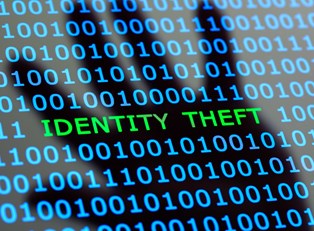It seems like everyone needs your social security number nowadays: the doctor, the dentist, and a multitude of online services. Although some places are more trustworthy than others, you shouldn’t share your SSN with any office that requests it. Minimize the risk of identity theft by not giving your SSN to these five places.
- Retail Stores
Unless you’re applying for an actual credit card, you have no reason to share your social security number with a retailer. Free rewards programs require nothing more than your name, email, and an address where you can receive coupons. If the rewards card sign-up “requires” your SSN, you should be suspicious. - Over the Phone or via Email
Here’s a good rule of thumb: if you can’t verify the identity of the person asking for your social security number, you shouldn’t give to them. With the advent of online banking, identity thieves have taken to the internet. They will pretend to be a representative from your bank or credit card company, then contact you via email or phone call.
Be wary of emails asking you to respond with your SSN and other sensitive information. Some may have a link to a fake mock-up of your actual bank’s website, complete with a phony log-in screen. These fraudsters may claim that your account has been compromised and they want to secure your account; in reality, they want to steal from you. Always call your bank’s customer service line to verify whether or not your account is truly in danger. - Medical Offices
Whether you’ve been taken to the hospital for an emergency or you’re having your eyes checked at the optometrist, your forms will likely ask for your social security number. Medical offices ask for your SSN for a few reasons. In case you don’t pay your medical bills, they will use your information to transfer the debt to a collection agency. Also, in the event that you die while hospitalized, they use your social security number to fill out a death certificate.
That said, they don't really need it, so you don't have to hand it over. We consider hospitals and medical offices to be establishments we can trust with our private information. However, their records aren’t as secure as we think—medical identity theft has increased by 20% since 2012. - Schools and Universities
Don’t hand over your social security number when enrolling your child in school. There’s no good reason; when it comes to private information, they should only need your address and contact information in case of emergency.
Institutes of higher education aren’t automatically entitled to your social security number either. College applications routinely ask for a SSN. Applicants may feel pressured to fill out every box or else their application will be rejected—many don’t know they aren’t required to give out their SSN on the preliminary application. You only need to provide your number for financial aid applications. - Your Wallet
Okay, you aren’t technically sharing your social security number by keeping it in your wallet. However, you put yourself at increased risk for identity theft. You should always keep your social security card in a secure location at home, not tucked in your wallet with your credit cards. In a worst-case-scenario, a pickpocket who takes your wallet will get away with your cash, cards, and your SSN. They’ll be able to do much more damage than merely emptying your bank account.




